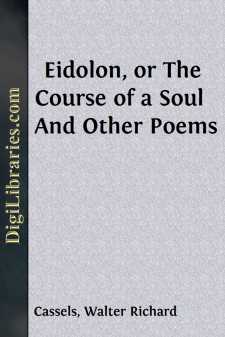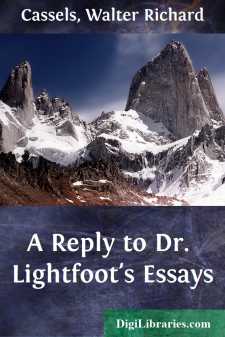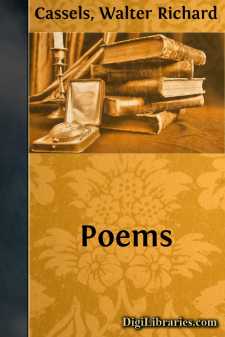Categories
- Antiques & Collectibles 13
- Architecture 36
- Art 48
- Bibles 22
- Biography & Autobiography 813
- Body, Mind & Spirit 142
- Business & Economics 28
- Children's Books 14
- Children's Fiction 11
- Computers 4
- Cooking 94
- Crafts & Hobbies 4
- Drama 346
- Education 46
- Family & Relationships 57
- Fiction 11829
- Games 19
- Gardening 17
- Health & Fitness 34
- History 1377
- House & Home 1
- Humor 147
- Juvenile Fiction 1873
- Juvenile Nonfiction 202
- Language Arts & Disciplines 88
- Law 16
- Literary Collections 686
- Literary Criticism 179
- Mathematics 13
- Medical 41
- Music 40
- Nature 179
- Non-Classifiable 1768
- Performing Arts 7
- Periodicals 1453
- Philosophy 64
- Photography 2
- Poetry 896
- Political Science 203
- Psychology 42
- Reference 154
- Religion 513
- Science 126
- Self-Help 84
- Social Science 81
- Sports & Recreation 34
- Study Aids 3
- Technology & Engineering 59
- Transportation 23
- Travel 463
- True Crime 29
Eidolon, or The Course of a Soul And Other Poems
Description:
Excerpt
INTRODUCTION TO EIDOLON.
Hazlitt says, one cannot "make an allegory go on all fours," it must to a certain degree be obscure and shadowy, like the images which the traveller in the desert sees mirrored on the heavens, wherein he can trace but a dreamy resemblance to the reality beneath. It therefore seems to me advisable to give a solution of the "Eidolon," the symbol, which follows, that the purpose of the poem may at once be evident.
In "Eidolon" I have attempted to symbol the course of a Poet's mind from a state wherein thought is disordered, barren and uncultivated, to that which is ordered and swayed by the true Spirit of Poetry, and holds its perfect creed.
I have therefore laid the scene on a desert island, whence, as from the isolation of his own mind, he reflects upon the concerns of life. At first he is a poet only by birthright 'Poeta nascitur.' He has the poet's inherent love for the Beautiful, his keen susceptibility of all that is lovely in outward nature, but these are only the blossoms which have fallen upon him from the Tree of Life, the fruit is yet untasted. He has looked at the evil of the world alone, and seeing how much "the time is out of joint" has become misanthropic, and turns his back alike on the evil and the good.
Then comes Night, the stillness of the soul, with starlight breaking through the gloom. He gazes on other worlds, and pictures there the perfection he sighs for, but cannot find in this. Thus by the conception of a higher and nobler existence acquiring some impetus towards its realization.
We then find him lying in the sunshine with the beauties of Nature around him, whose silent teaching works upon him till the true Spirit of Poetry speaks within his soul, and combats the misanthropy and weakness of the sensuous Man, showing him that Action is the end of Life, not mere indulgence in abstract and visionary rhapsodies.
In the next scene he makes further advances, for the spirit of Poetry shows him that the beauty for which he has sought amongst the stars of heaven lies really at his feet; that Earth, too, is a star capable of equal brightness with those on which he gazes. He is thus brought from the Ideal to the Real.
The fifth scene emblems the influence of Love on the soul. It is the nurse of Poetry, and Sorrow is the pang which stimulates the divine germ into active vitality. Had he been entirely happy, and the course of his love run smooth, he would have been content to enjoy life in ease and idleness.
Next we find him looking broadly on life, on its utmost ills as well as its beauties, but not with the eye of the misanthrope, but of the Physician who searches out disease that he may find the remedy, and though the soul still sighs for the serenity and placid delight of the ideal life, the world of Thought, the glorious principle of Poetry prevails, and he sacrifices self-ease, feeling that he has a nobler mission than to dream through life, and that here he must labour ere he can earn the right to rest.
Thus in the last scene the Spirit and the Man have become one—he is truly a Poet....




